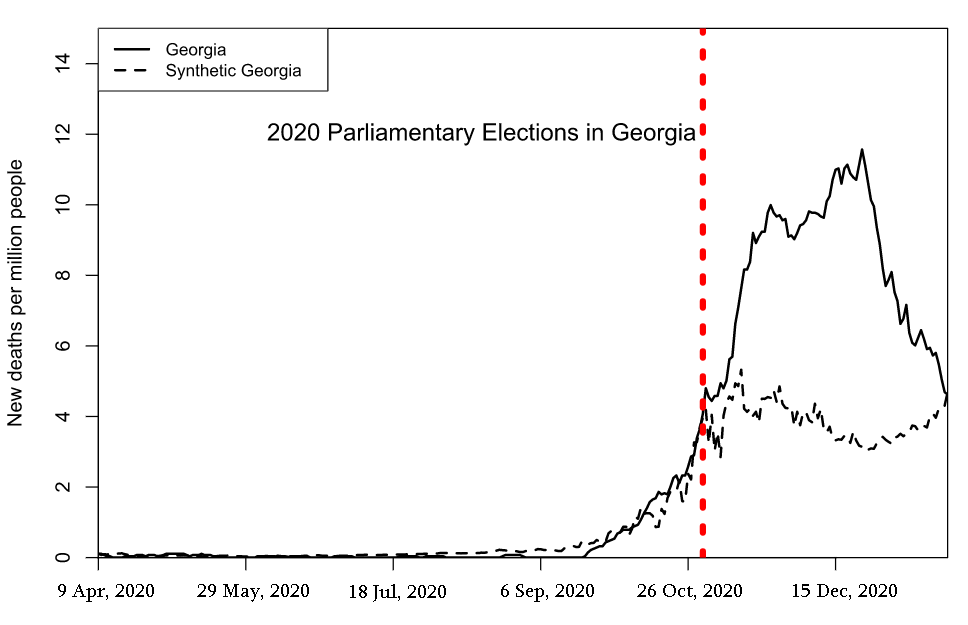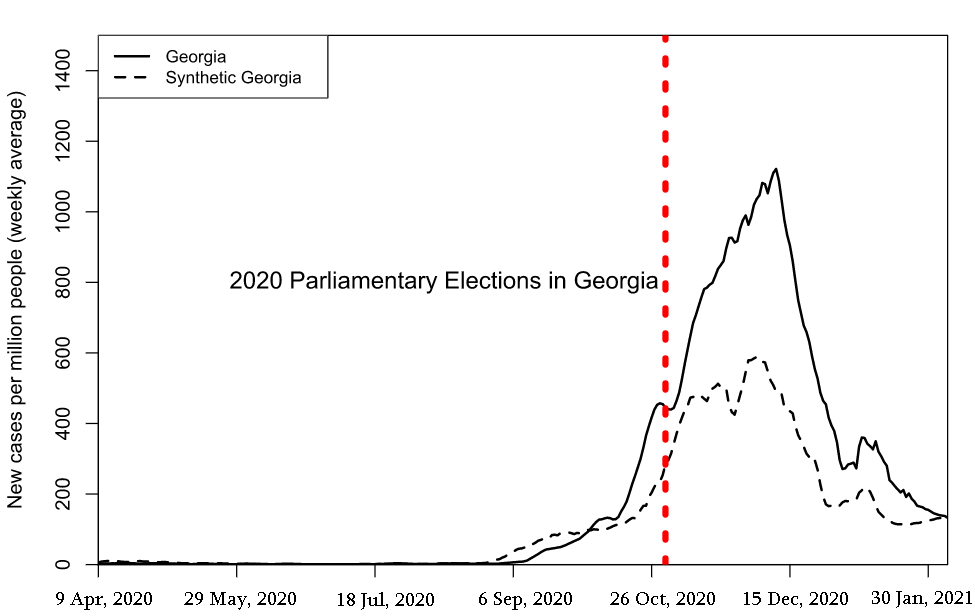Datablog | Georgia’s COVID-19 cases exploded due to the 2020 parliamentary elections

New analysis released in CRRC Georgia’s policy bulletin suggests that the 2020 parliamentary elections led to a massive rise in COVID-19 cases and deaths in Georgia.
While the analysis of last year’s vote looks bleak, this is not to say that the 2 October local elections should be cancelled, which this analysis in no way addresses. However, political parties, the government, and voters need to exercise caution if a repeat of last year is to be avoided.
The newly released policy brief estimates that approximately 1,250–1,450 of Georgia’s COVID-19 deaths and 100,000–140,000 cases are associated with Georgia’s October 2020 parliamentary elections.
To come to these estimates, a synthetic controls model was used. Synthetic controls models are a type of quasi-experimental statistical model which help to estimate what would have happened in the absence of a large-scale policy change or event. To do so, it constructs a baseline scenario from other countries which are not affected by the particular event. By comparing the baseline scenario to what actually happened, it is possible to estimate the effect of an event.
The chart below shows the results of a model for COVID-19 deaths per million people. The results suggest that around 1,450 people passed away from COVID-19 that would not have had elections not been held. Other models suggested approximately 1,250 deaths were associated with the elections.
Notably, the divergence between the baseline scenario and real Georgia starts two weeks after the elections, in line with the scientific consensus that death rates pick up approximately two weeks after COVID-19 cases start to pick up. The model suggests Georgia had elevated deaths for three months. Two additional models in the policy brief provide lower point estimates of around 1,250 deaths, but substantively similar results.

Similar models were created for COVID-19 cases per capita. The models suggest that between 100,000 and 140,000 cases are associated with the elections. As with the model above, the elevated case counts lasted for approximately two to three months.

The model’s estimates of the increase in COVID-19 cases are in line with the estimated COVID-19 per capita deaths. During this time period, approximately 1.1% of COVID-19 cases resulted in fatalities in Georgia. The deaths and cases the model attributes to the elections is in line with this figure at 1.03%–1.28%.
These results suggest that the government needs to actively work on preventing the spread of COVID-19 on election day on 2 October, and citizens need to follow safety guidelines to prevent the local elections from resembling the 2020 parliamentary elections in terms of COVID-19 spread.
The full policy brief this article is based on is available here. The full replication code for the analysis is available here.
The views expressed in this article are the authors’ alone and do not represent the views of CRRC Georgia or any related entity.








